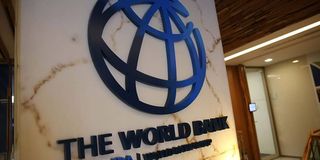Prime
World Bank investigation exposes non-compliance in Tanzania conservation project

What you need to know:
- The investigation, prompted by complaints from residents in the area, has revealed a series of failures that have had lasting consequences for local populations.
Dar es Salaam. An investigation by the World Bank’s Inspection Panel has revealed that the global financial institution failed to follow its own safeguards and procedures during the planning and supervision of the Tanzania Resilient Natural Resource Management for Tourism and Growth (REGROW) project.
The $150 million initiative, launched in 2018, aimed to enhance the management of natural resources and tourism assets in southern Tanzania, while also providing alternative livelihoods for local communities.
However, the project, which was canceled by the Tanzanian government in November 2024, has been linked to significant harm to the affected communities, particularly those living near the Ruaha National Park (RUNAPA).
The investigation, prompted by complaints from residents in the area, has revealed a series of failures that have had lasting consequences for local populations.
In July 2023, two individuals from the project area submitted a Request for Inspection to the Bank’s Inspection Panel, an independent mechanism for people who believe they have been adversely affected by World Bank-funded projects.
The request cited multiple violations, including threats of eviction by the Tanzania National Parks Authority (TANAPA), the forced displacement of villagers, the use of excessive force, and the unlawful seizure of cattle.
The complaint claimed that the project violated World Bank policies, particularly those related to the involuntary resettlement of indigenous peoples. These concerns prompted the Bank to initiate a formal investigation in November 2023.
The Inspection Panel’s investigation revealed that the World Bank failed to adequately assess the risks related to the resettlement of communities living within the project’s target areas, particularly those residing in or near the park.
The Bank did not sufficiently identify or mitigate the risks associated with park access restrictions, which led to significant harm to local communities. Furthermore, the Bank's failure to implement the necessary safeguards resulted in forced evictions, property losses, and the lack of adequate support for alternative livelihoods for displaced residents.
Despite being alerted to these issues, the World Bank continued disbursements for more than a year, further exacerbating the situation. The delays in addressing the problems have caused considerable distress for the affected communities, including disruptions to livelihoods and the closure of farms.
World Bank Managing Director of Operations, Anna Bjerde, acknowledged the institution's failure to adequately prepare and supervise the project.
She expressed regret over the shortcomings in the project’s planning and supervision, noting that these failures resulted in inadequate mitigation measures to address the adverse impacts on local communities.
“We regret that the REGROW project preparation and supervision did not sufficiently account for project risks, resulting in inadequate mitigation measures to address adverse impacts,” Bjerde said in a statement.
In response to the findings, the World Bank has pledged to take corrective actions, which have been approved by the Bank's Executive Directors. These include the development of two new community-driven initiatives aimed at providing support to vulnerable communities. The initiatives will focus on livelihood development, climate resilience, and social services.
Anuradha Mittal, Executive Director of the Oakland Institute, a US-based think tank that supported the Tanzanian nationals’ complaints, hailed the investigation’s findings as a victory for the affected pastoralists and farmers. She emphasized that the World Bank’s failure to act after being informed of the harm it was financing allowed the situation to worsen, leading to continued cattle seizures, farm closures, and loss of livelihoods for the families involved.
“The World Bank failed to act after it was informed of the harms it was financing,” Mittal stated. “It continued disbursements for a full year, allowing cattle seizures and farm closures to drain family savings, kept children out of school, and let TANAPA rangers murder more innocent villagers with impunity. No institution is above the law, and these actions must not be ignored.”
Mittal also criticized the proposed solutions, such as microfinance and clean cooking initiatives, calling them insufficient to address the real damages caused by the project. “Suggesting that tens of thousands of people forced off their land can survive with 'alternative livelihoods' is a slap in the face to the victims,” she added.
Ibrahim Pam, Chair of the Inspection Panel, stressed that the investigation provided crucial lessons for the World Bank’s approach to supporting conservation and development projects, particularly those that involve resettlement and restrict access to legally designated parks.
He noted that the investigation underscored the importance of managing risks more effectively and considering the needs and rights of affected communities from the outset.
“The Inspection Panel pays tribute to the courage of the requesters in approaching the Panel with the harms that they suffered,” Pam said.
“Management has acknowledged its compliance failures and has undertaken to implement actions approved by the Executive Directors to redress the harms caused.”
The corrective actions approved by the World Bank’s Executive Directors will include preparing two new community-driven operations to provide dedicated support for vulnerable communities, including efforts to build resilience to climate change and improve access to social services.





